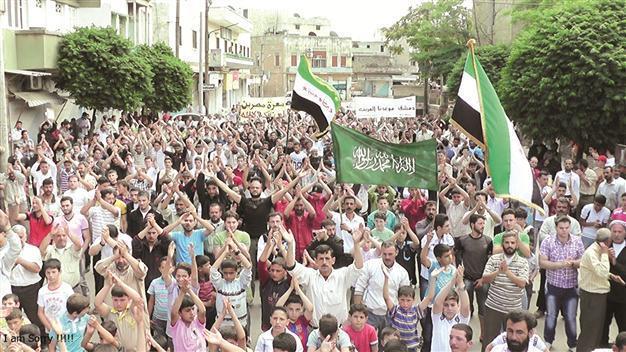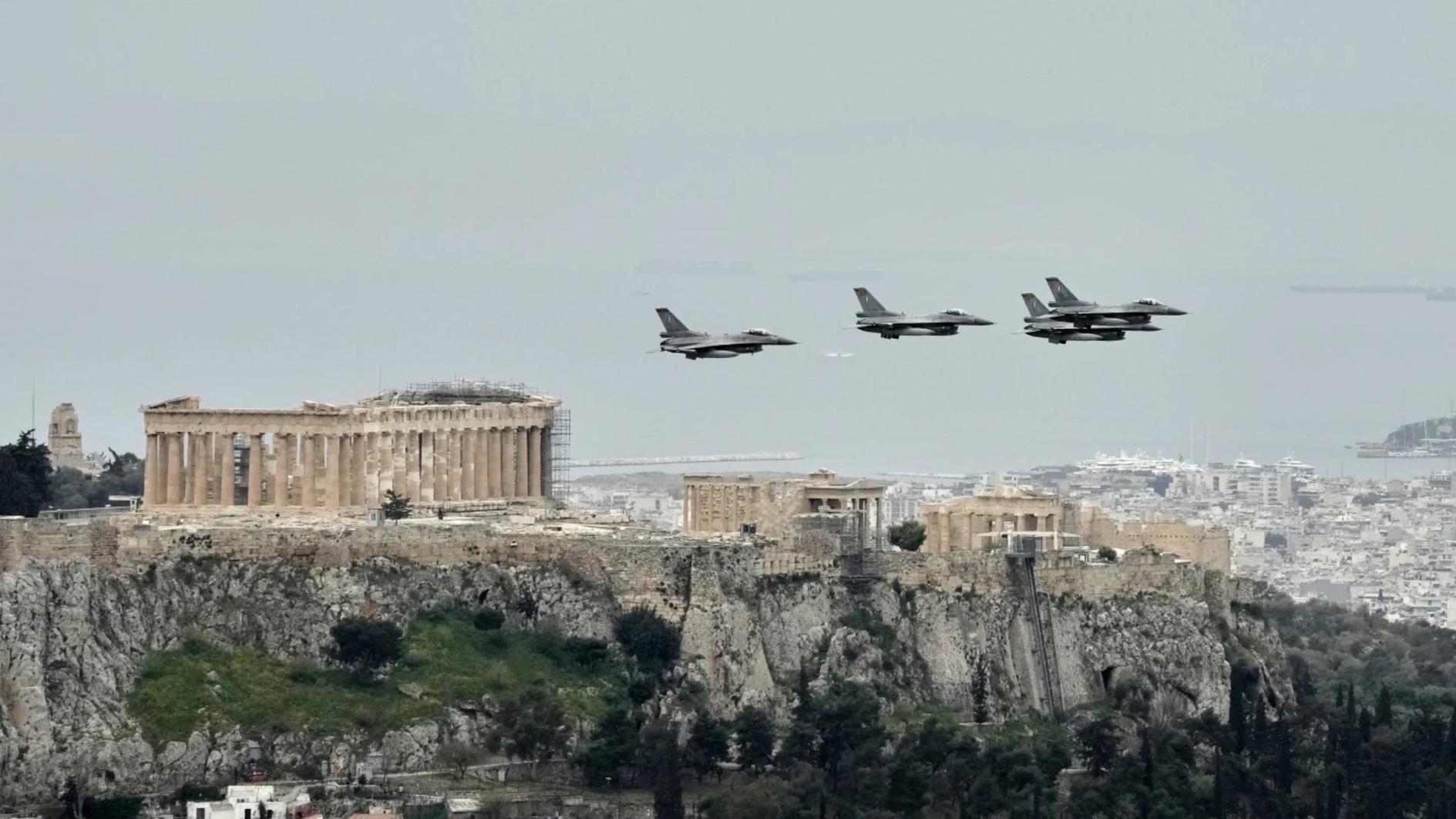West expels Syria envoys after Houla
DAMASCUS

Anti-regime protestors are seen in Maarat Misrin in the northern province of Idlib in this file photo. As a response to the Houla massacre, which killed 108 people, Western states have expelled Syrian diplomats from their countries.
U.N.-Arab League envoy Kofi Annan told President Bashar al-Assad of the world’s “grave concern” about the bloodshed in Syria in a meeting yesterday, as Western powers moved to expel Damascus’ diplomats in protest against the Houla massacre.Cranking up the pressure on the Syrian regime, France, Germany, Italy and Spain said they were kicking out Syria’s ambassadors in their countries. Canada announced it was expelling all Syrian diplomats, while Britain and Australia expelled senior Syrian diplomats. The U.S. State Department is also expelling Syria’s charge d’affaires in Washington within 72 hours. Bulgaria was expelling Syria’s interim ambassador and two other diplomats. The Netherlands has declared Syria’s ambassador to the country as “persona non grata,” the Dutch foreign affairs minister said.
No expelling from Turkey
However, Turkey is not considering expelling Syrian diplomats, diplomatic sources said. French Foreign Minister Laurent Fabius called al-Assad a murderer and Australian Foreign Minister Bob Carr said those responsible for the massacre at Houla would be held to account. Fabius, however, ruled out a ground intervention in Syria, saying the risk the conflict could spread was too great. Some governments told the diplomats to leave immediately, while others gave them up to seven days to pack their bags. “This is the most effective way we’ve got of sending a message of revulsion to the Syrian government,” Carr said. After announcing the expulsion of the Syrian ambassador, French President François Hollande said Paris would host a new meeting of the Friends of the Syrian People group in July.Syria’s main opposition Syrian National Council welcomed the expulsions and called for a U.N. Security Council resolution authorizing the “use of force” to end the government’s bloodshed. In his meeting with al-Assad on the second day of his visit, Annan conveyed “the grave concern of the international community about the violence in Syria, including in particular the recent events in Houla,” his office said. Annan told al-Assad that his plan “cannot succeed without bold steps to stop the violence and release detainees, and stressed the importance of full implementation of the plan,” his office said. The success of the Annan plan depends on the end of terrorist acts and those who support them and the smuggling of weapons,” al-Assad was quoted by state television as saying. Twenty soldiers, six civilians and six rebels were killed in heavy fighting in Aleppo province, opposition sources said yesterday.
Compiled from AFP, AP and Reuters stories by the Daily News staff.
Most of the Houla massacre victims were executed: UN
GENEVA - Reuters
Most of the victims of the massacre in the Syrian town of Houla were executed, while fewer than 20 of the 108 people killed died from artillery and tank fire, the U.N. rights body said yesterday. Survivors have told U.N. investigators that most of the other victims died in two bouts of summary executions carried out by pro-government “shabbiha” militiamen in the nearby village of Taldaou, U.N. rights spokesman Rupert Colville said. “Under 20 of the 108 can be attributed to artillery and tank fire,” he told a news briefing in Geneva. Some 49 children and 34 women were among the known victims, but he said: “There are reports of more deaths.” “At this point it looks like entire families were shot in their houses.” the findings of the report came as Syrian President Bashar al-Assad and envoy Kofi Annan met in Damascus yesterday.
















